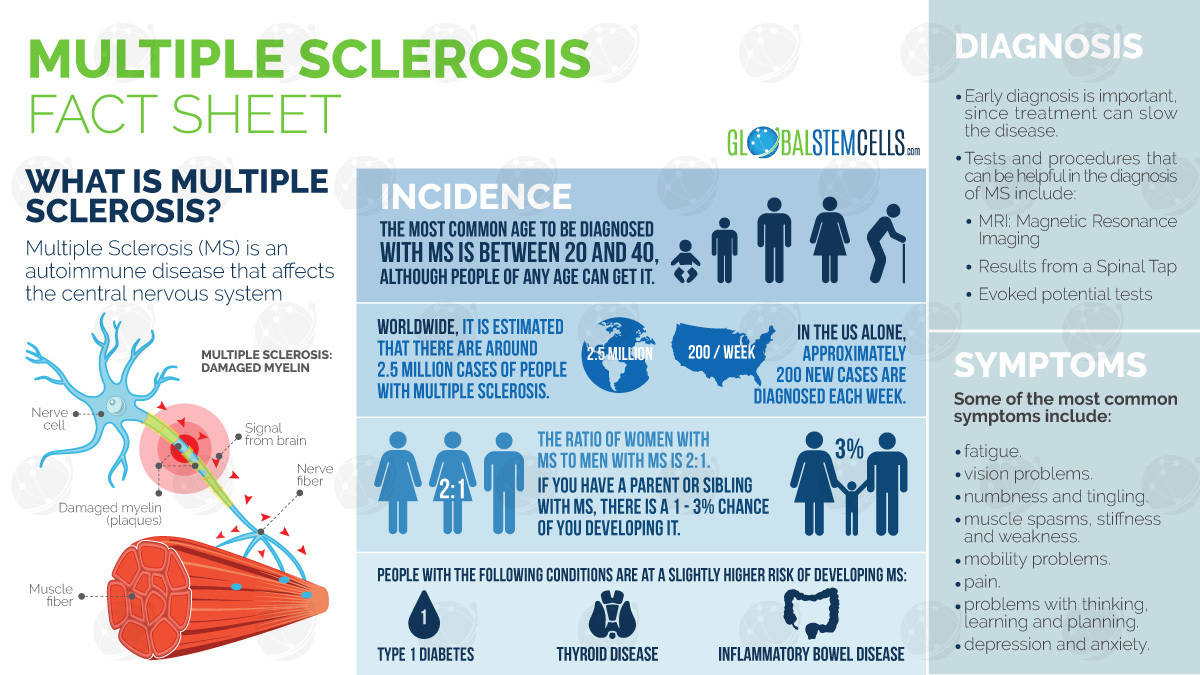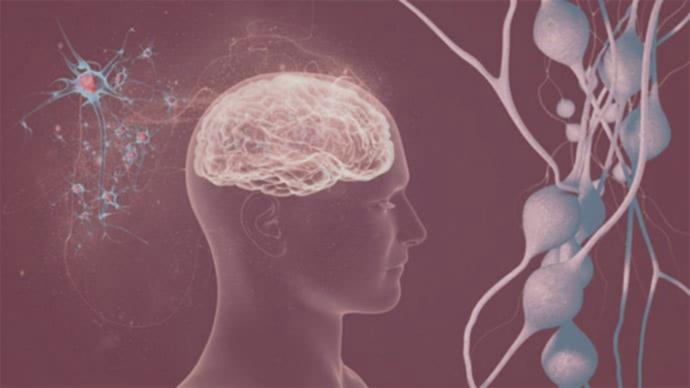2.5 million people around the world today live with the incapacitating effects of Multiple Sclerosis (MS). However recent developments in Stem Cell Therapy may have the potential to alleviate the diverse debilitating symptoms associated with MS.
Multiple Sclerosis is an autoimmune disease that afflicts the central nervous system inhibiting the proper functioning of nerve impulses in the brain, the spinal cord and optic nerves. Although patients living with MS have their own unique experience, with the wide-ranging symptoms showing up in varying intensity, there are nevertheless some standard signs that a patient will experience. Early warning signs of Multiple Sclerosis will invariably include eye-related problems such as blurry vision, double vision, involuntary eye movements and pain. Bowel-related problems including constipation and incontinence are common signs of this disease and tend to show up for a majority of those diagnosed with MS. Other MS-related complications may include problems with coordination (evident in difficulty in walking), numbness and pain, twitching and tingling in various parts of the body. Sexual dysfunction in both sexes may also be evident in some patients.
What is Multiple Sclerosis?

Understanding Multiple Sclerosis Symptoms
MS symptoms may sometimes disappear for extended lengths of time and then suddenly reappear. The symptom-free interval is not an indication of improved health. The appearance of the symptoms the first time round is a clear signal to seek medical advice.
Current conventional treatments serve only to slow down the disease. According to CBS2’s Dr Max Gomez, the recent medical advances in Stem Cell Therapy (alluded to earlier) may reverse these and other symptoms associated with MS.
Dr Gomez cites the example of Malia Litman, a trial attorney in Dallas, Texas, who was diagnosed with MS 18 years ago. As the disease progressed she soon lost her mobility, coordination and energy. Things took a turn for the worse when Malia broke her leg. Compounded by the fact that her medications were proving ineffective she looked for relief outside conventional medicine.
This ‘breaking point’ in her situation was a blessing in disguise because it led her to Dr Dimitrios Karussis, and through him to viable alternative treatments which have brought her the much-needed relief that she has sought for so long.
Successfully challenging the long-held notion among neurologists that disabilities are irreversible, Dr Karussis, (himself a neurologist) uses adult stem cells taken from the patient’s bone marrow and reintroduces them into the body by injecting them into their spinal fluid. Malia Litman’s experience can only be described as miraculous (for lack of a stronger term). 24 hours after the first treatment Malia could pick up her leg unaided. Her energy levels have steadily risen and her speech is clearer. Malia has now taken control of her life, reactivating her law license and is all set to practice law again.
While all this is going on it is instructive to point out that Stem Cell Therapy for Multiple Sclerosis has been in successful use for quite some time now. Indeed through the use of Mesenchymal Stem Cells (MSC), supportive therapies and rehabilitation, MS patients have seen marked improvement in their bladder and bowel control, balance and coordination, vision, motor function, tremors and fatigue and other areas adversely affected by MS.
H/T: CBS New York




 English
English